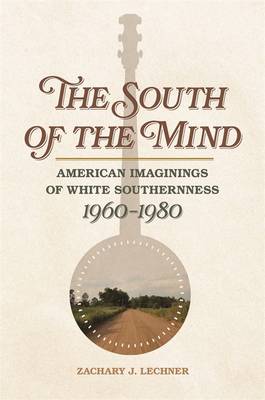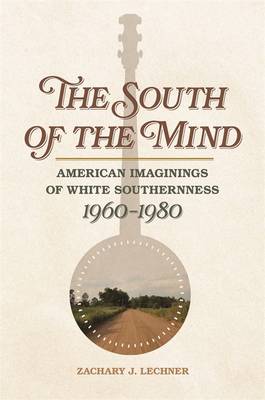
- Afhalen na 1 uur in een winkel met voorraad
- Gratis thuislevering in België vanaf € 30
- Ruim aanbod met 7 miljoen producten
- Afhalen na 1 uur in een winkel met voorraad
- Gratis thuislevering in België vanaf € 30
- Ruim aanbod met 7 miljoen producten
Omschrijving
With the nation reeling from the cultural and political upheavals of the 1960s era, imaginings of the white South as a place of stability represented a bulwark against unsettling problems, from suburban blandness and empty consumerism to race riots and governmental deceit. A variety of individuals during and after the civil rights era, including writers, journalists, filmmakers, musicians, and politicians, envisioned white southernness as a manly, tradition-loving, communal, authentic--and often rural or small-town--notion that both symbolized a refuge from modern ills and contained the tools for combating them. The South of the Mind tells this story of how many Americans looked to the country's most maligned region to save them during the 1960s and 1970s.
In this interdisciplinary work, Zachary J. Lechner bridges the fields of southern studies, southern history, and post-World War II American cultural and popular culture history in an effort to discern how conceptions of a tradition-bound, "timeless" South shaped Americans' views of themselves and their society's political and cultural fragmentations. Wide-ranging chapters detail the iconography of the white South during the civil rights movement; hippies' fascination with white southern life; the Masculine South of George Wallace, Walking Tall, and Deliverance; the differing southern rock stylings of the Allman Brothers Band and Lynyrd Skynyrd; and the healing southernness of Jimmy Carter. The South of the Mind demonstrates that we cannot hope to understand recent U.S. history without exploring how people have conceived the South, as well as what those conceptualizations have omitted.Specificaties
Betrokkenen
- Auteur(s):
- Uitgeverij:
Inhoud
- Aantal bladzijden:
- 232
- Taal:
- Engels
- Reeks:
- Reeksnummer:
- nr. 24
Eigenschappen
- Productcode (EAN):
- 9780820353906
- Verschijningsdatum:
- 15/09/2018
- Uitvoering:
- Paperback
- Formaat:
- Trade paperback (VS)
- Afmetingen:
- 152 mm x 229 mm
- Gewicht:
- 285 g

Alleen bij Standaard Boekhandel
Beoordelingen
We publiceren alleen reviews die voldoen aan de voorwaarden voor reviews. Bekijk onze voorwaarden voor reviews.











